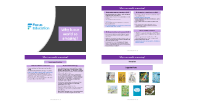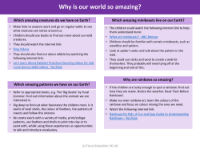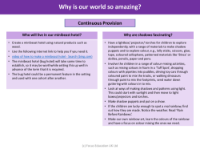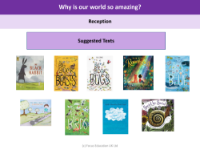Assessment - Our amazing world - EYFS
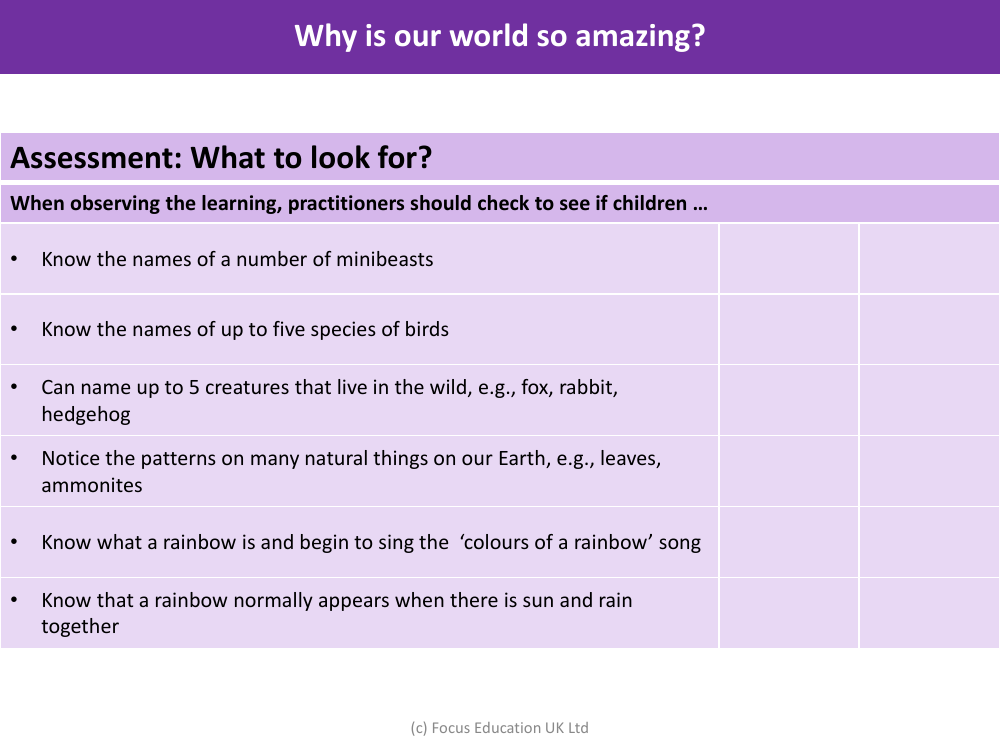
Science Resource Description
In the early years foundation stage (EYFS), practitioners assess children's appreciation and understanding of the natural world around them. An important aspect of this assessment is to determine the breadth of the children's knowledge regarding various living creatures and natural phenomena. Observations are made to see if children can identify and name different minibeasts, a term that encompasses a variety of small invertebrates. Additionally, children are expected to recognize and name up to five species of birds, which helps to gauge their awareness of local wildlife and their observational skills.
Beyond flying fauna, the assessment also looks at whether children can name up to five creatures that are commonly found in the wild, such as foxes, rabbits, and hedgehogs. This knowledge indicates a child's engagement with and curiosity about the animals that share their environment. Furthermore, practitioners observe if children notice patterns found in nature, such as the intricate designs on leaves or the spiral shapes of ammonites, which can demonstrate an understanding of the world's complexity and beauty. Knowledge of rainbows is another assessment point; children should know what a rainbow is, the basic conditions under which one appears, and even begin to sing a song that includes the colours of a rainbow, thereby integrating science, music, and art into their learning experience.
